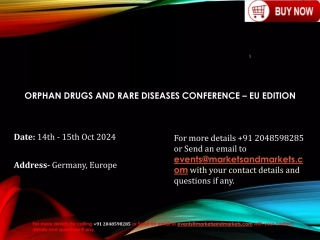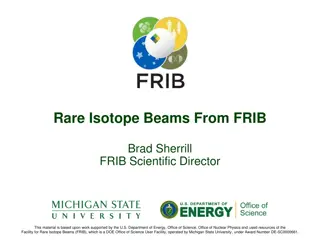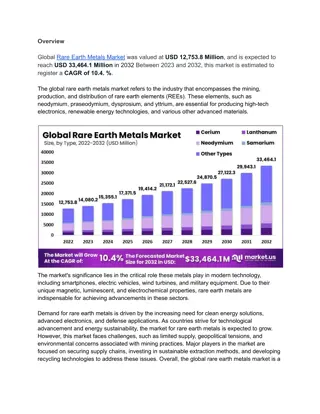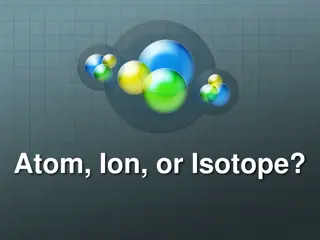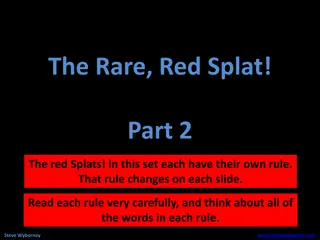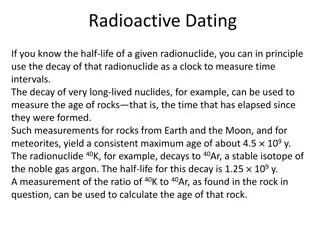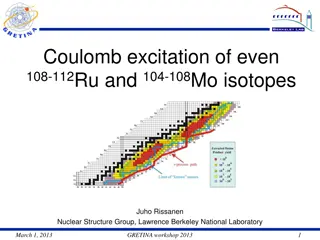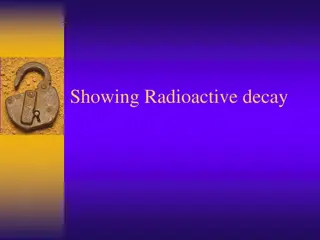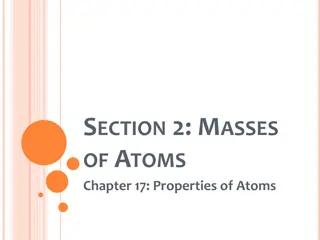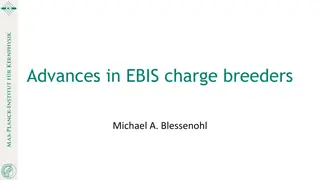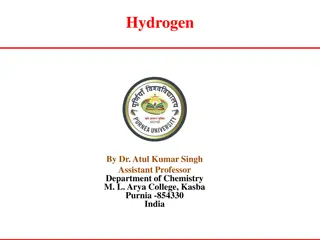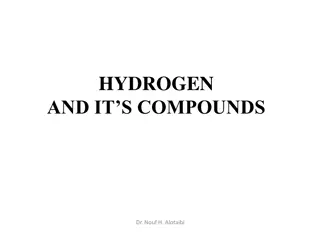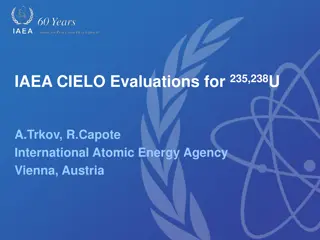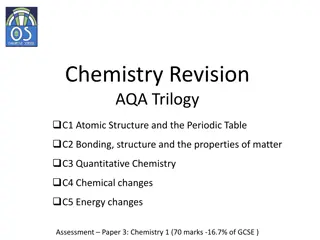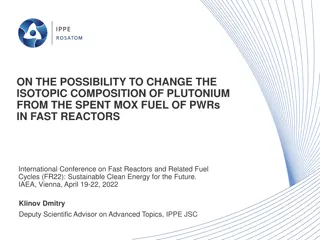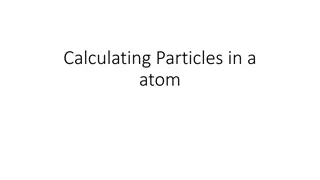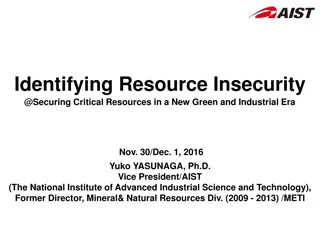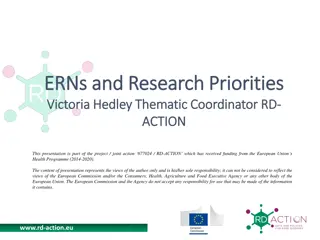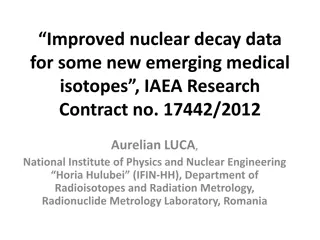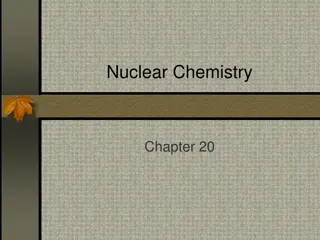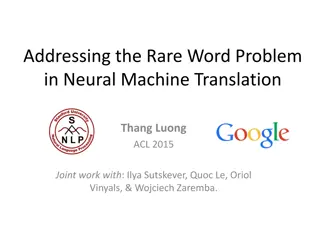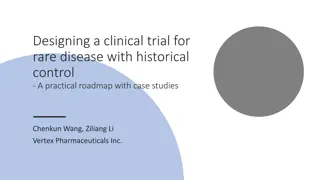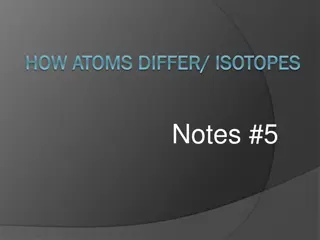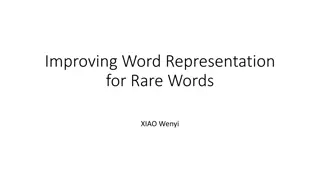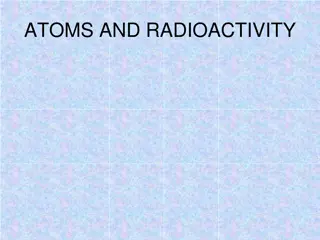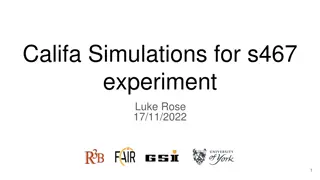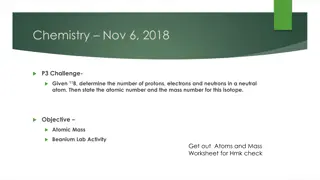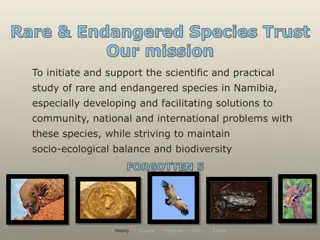Upcoming Event on Orphan Drugs and Rare Diseases– | 14th – 15th October 2024
Join us at our MarketsandMarkets 5th Annual Orphan Drugs and Rare Diseases Conference in Germany, Europe, for a groundbreaking exploration of the recent advances in developing life-saving therapies, technologies in diagnosing, and strategies to enhance orphan drug development.\n\nEnquire Now @ https
1 views • 5 slides
Advancing Nuclear Physics with Heavy Ion Storage Rings
Explore the world of rare isotopes and exotic ions through the use of Heavy Ion Storage Rings, enabling precision measurements, production of unstable nuclei, and beam-target interactions for studying nuclear processes and astrophysical relevance. Supported by the U.S. Department of Energy, this tec
5 views • 9 slides
Hennessy Paradis rare cognac shop online uk
In the UK, the price of single malt whisky can vary widely depending on factors like brand, age, and rarity. On average, you can expect to pay anywhere from \u00a330 to \u00a3100 or more for a standard bottle. Limited editions or older expressions can command prices well into the hundreds or even th
3 views • 6 slides
Rare Isotope Beams from FRIB - Facility Overview and Operations
FRIB (Facility for Rare Isotope Beams) is supported by the U.S. Department of Energy and Michigan State University. It utilizes advanced techniques for rare isotope beam formation, offering insights into nuclear physics. The facility operates with high beam power, serving various scientific experime
0 views • 15 slides
Orphan Drugs and Rare Diseases – US Edition | 17th - 18th October 2024
Join us at our MarketsandMarkets Orphan Drugs and Rare Diseases Conference in Boston, USA for a groundbreaking exploration of the recent advances in developing life-saving therapies, technologies in diagnosing, and strategies to enhance orphan drug development.\n\nRegister Now @ \/\/events.marketsan
1 views • 5 slides
Concerns Over Weight Loss Drugs and Rare Eye Condition
Novo Nordisk shares remained stable on Thursday, despite a critical report from Harvard Medical School linking the company\u2019s weight loss drugs to a rare eye condition
0 views • 2 slides
Rare Earth Metals Market Gains Momentum with Tech Advancements
Global Rare Earth Metals Market was valued at USD 12,753.8 Million, and is expected to reach USD 33,464.1 Million in 2032 Between 2023 and 2032, this market is estimated to register a CAGR of 10.4. %.\n\nDownload a sample report in MINUTES@\/\/market
0 views • 4 slides
Updates on European Training Requirements for Rare Diseases and Neuroendocrine Neoplasia Medicine
Comprehensive updates on European training requirements for rare diseases, rare adult solid cancers, and neuroendocrine neoplasia medicine. Initiatives include syllabi, competencies, and collaborations with international networks for advancements in the field.
0 views • 6 slides
Understanding Atoms, Ions, and Isotopes in Chemistry
Atoms are neutral with equal protons and electrons. Ions are charged atoms resulting from gaining or losing electrons, while isotopes are atoms with varying numbers of neutrons. The atomic number always signifies the number of protons in an atom, unaffected by electron or neutron changes. Explore th
2 views • 5 slides
Stakeholder Engagement in Rare Diseases: Key Role in Ghana
Rare diseases in Ghana present significant challenges such as lack of awareness, insufficient data, delayed diagnosis, and limited treatment options. To address these issues, collaborative efforts involving multiple stakeholders are essential. Actions are needed to enhance health education, improve
0 views • 9 slides
Decoding the Rules of the Rare Red Splats!
Dive into the intriguing world of the Rare Red Splats with ever-changing rules on each slide. Carefully decipher the values based on the relationship between the red and black Splats. Test your logic skills and uncover the mysteries within each level.
0 views • 17 slides
EveryLife Foundation for Rare Diseases Introductory Webinar Overview
The EveryLife Foundation for Rare Diseases held an introductory webinar providing insights into their mission, foundation overview, staff members, board composition, and initiatives like advocating for biotechnology innovation and rare disease treatments through policy and law changes. The foundatio
0 views • 31 slides
Introduction to Atomic Masses and Mass Spectrometry
Understanding atomic masses, isotopes, and mass spectrometry in the context of chemistry, particularly the concept of standard atomic mass unit (amu) and its application in measuring the masses of atoms. The content delves into the composition of atoms, isotopes, and how to determine the mass of an
1 views • 20 slides
Understanding Radioactive Dating Methods
The process of radioactive dating involves utilizing the decay of radionuclides to measure time intervals, with applications in determining the age of rocks and artifacts. Techniques such as radiocarbon dating, based on isotopes like 14C, enable scientists to determine the age of organic materials b
0 views • 4 slides
Coulomb Excitation Studies of Neutron-Rich Ru and Mo Isotopes
Workshop presentation on using GRETINA, CHICO, and CARIBU for Coulomb excitation studies of even Ru and Mo isotopes, exploring shape evolution through systematic studies and experimental limitations like beam intensity and purity. Analysis includes gamma intensities, level schemes, and nuclear reori
1 views • 11 slides
Managing for Multiple Values in Forest Conservation
Forest management for multiple values involves producing timber, providing recreation, protecting watersheds, and perpetuating rare species. Covering over 11,000 acres with a diverse ecosystem, the area includes oak woodlands, savannas, and prairies. With a shift towards conserving rare features and
0 views • 17 slides
Understanding Radioactive Decay and Isotopes in Chemistry
Explore the fascinating world of radioactive decay, isotopes, and nuclear transformations in this educational resource. From reviewing atomic numbers to illustrating alpha and beta decay processes, discover the fundamental principles behind these phenomena with detailed explanations and visuals. Del
0 views • 17 slides
Understanding Atomic Mass and Isotopes in Atoms
Explore the concept of atomic mass in atoms, learn to compute atomic mass and mass number, identify isotopes, and calculate the number of neutrons in an atom. Understand the significance of the atomic number and mass number in determining the characteristics of elements.
0 views • 14 slides
Understanding Atomic Structure in Introductory Chemistry
Explore the basics of atomic structure in Introductory Chemistry, covering topics such as representing elements with atomic symbols, isotopes, and atomic bookkeeping. Learn through visual aids and examples to enhance your understanding of elements, isotopes, and atomic properties.
0 views • 21 slides
Advancements in Rare Isotope Research at EURISOL Town Meeting
Cutting-edge research and facility developments in the field of rare isotopes were showcased at the EURISOL Town Meeting in INFN - Pisa. Topics included advances in EBIS charge breeders, the ARIEL Extension facility, and the CANREB laboratory with Electron Beam Ion Source technology. Various aspects
0 views • 39 slides
Overview of Hydrogen: Properties, Isotopes, and Characteristics
Hydrogen, a colorless gas with atomic number 1 and mass 1.008 amu, exhibits electropositive and electronegative characteristics due to its electron configuration. It has three isotopes - protium, deuterium, and tritium - with varying reaction rates. Protium is the most abundant isotope. This element
0 views • 8 slides
Exploring Hydrogen and Its Compounds: Properties and Isotopes
Hydrogen, the most abundant element in the universe, has unique properties that make it resemble both alkali metals and halogens. It exists mainly in combined states, except in volcanic gases, and its isotopes exhibit distinct chemical and physical characteristics. The ionization energy of the H-H b
0 views • 37 slides
Understanding Isotopes in Biogeochemistry
Isotopes are atoms with the same number of protons but different numbers of neutrons. This presentation explores the significance of stable isotopes, types of isotopes, expressing isotopic abundances, isotope effects, and applications to geochemical studies. Learn about common light element stable i
0 views • 14 slides
IAEA CIELO Evaluations for Uranium Isotopes & Criticality Benchmarks Report
This report discusses the IAEA CIELO evaluations for uranium isotopes, focusing on the impact of Standards_2016 on criticality predictions, adjustments in nuclear model calculations using the Empire code, and incorporation of experimental data to enhance performance in integral benchmarks.
0 views • 7 slides
Chemistry Revision: Atomic Structure and the Periodic Table - AQA Trilogy
Explore key concepts in Chemistry Revision for AQA Trilogy including atomic structure, periodic table organization, separation techniques, symbol equations, electron structures, isotopes, and more. Learn about burning magnesium, crystallization, chromatography, fractional distillation, and propertie
0 views • 10 slides
Innovations in Reprocessing Spent MOX Fuel for Sustainable Nuclear Energy
Discussion at the FR22 Conference focuses on the potential for fast reactors to modify the isotopic composition of plutonium from spent MOX fuel of PWRs. By utilizing fast reactors like BN-800, countries can alter the fissile isotopes in plutonium, enabling its reuse in thermal reactors and effectiv
0 views • 8 slides
Understanding Copper Atoms: Protons, Electrons, Neutrons, Isotopes
Explore the intricacies of copper atoms, including calculations for protons, electrons, neutrons, mass number, and isotopes. Learn about the importance of oxidation states and electron configurations from the periodic table. Discover the isotope notation and final details for the element copper.
0 views • 8 slides
Challenges in Ensuring Critical Mineral Supply for Japan's Sustainable Industrial Activities
Japan faces challenges in securing critical minerals for sustainable industrial activities due to market failures in rare metals trade, lack of information symmetry in supply chains, and the small market size of rare metals. The Government of Japan implements policy measures such as overseas resourc
0 views • 15 slides
Advancing Rare Disease Research and Healthcare Initiatives
This presentation highlights the objectives, thematic priorities, and actions of the RD-ACTION project funded by the European Union's Health Programme. It focuses on supporting the Orphanet database, promoting multi-stakeholder debates on rare diseases, and enhancing data sharing and healthcare path
0 views • 16 slides
Enhanced Nuclear Decay Data for Medical Isotopes Research
Improved nuclear decay data for emerging medical isotopes was evaluated as part of an IAEA research contract. The process involved reviewing previous evaluations, gathering experimental data, compiling decay data sets, and disseminating results. Challenges at IFIN-HH/LMR included limited funding and
0 views • 32 slides
Understanding Nuclear Chemistry: A Comprehensive Overview
Explore the world of nuclear chemistry in Chapter 20, covering stable and unstable isotopes, radioactivity, radiation exposure, radioactive particles, types of radiation (alpha, beta, gamma), and how to stop radiation. Learn about isotopes, decay processes, and the impact of radiation on our daily l
0 views • 18 slides
Addressing the Rare Word Problem in Neural Machine Translation
Thang Luong and team addressed the rare word problem in Neural Machine Translation by proposing an approach to track the origins of rare words in target sentences. They utilized unsupervised alignments and relative indices in the training data and implemented a post-processing method for test transl
0 views • 21 slides
Understanding Average Atomic Mass Calculation
Dive into the concept of calculating average atomic mass through fractional and percentage abundances of isotopes. Practice examples with carbon and mercury isotopes to grasp the methodology effectively.
0 views • 20 slides
Practical Guidelines for Designing Clinical Trials in Rare Diseases
This comprehensive content delves into the strategic planning of clinical trials for rare diseases, emphasizing the utilization of historical control data and the challenges associated with it. It discusses the significance of historical control in trial design, the evolving landscape of rare diseas
0 views • 18 slides
Understanding Atoms and Isotopes in Chemistry
Understanding atoms and isotopes is essential in chemistry. Atoms consist of protons, neutrons, and electrons that determine their properties. Isotopes are atoms of the same element with different atomic masses due to varying numbers of neutrons. Learning how to determine subatomic particles and ato
0 views • 17 slides
Enhancing Word Representation for Rare Words by Xiao Wenyi
This article discusses methods for improving word representation for rare words, such as the count-based Skip-gram by Mikolov and the predict-based GloVe by Pennington. It explores the concepts of Skip-gram, GloVe, and issues faced by existing models in handling rare words.
0 views • 22 slides
Understanding Atomic Structure and Radioactivity
Explore the composition of atoms with protons, neutrons, and electrons, and learn about isotopes, nuclear notation, and the properties of subatomic particles. Understand radioactivity, including alpha, beta, and gamma radiation, and their impact on atomic and mass numbers. Discover the significance
0 views • 30 slides
Califa Simulations and Experimental Observations in Nuclear Physics Research
Exploring nuclear physics research through Califa simulations and experimental observations with a focus on PID gating, clustering algorithms, beam settings, and Ca isotopes chain gating. The study involves simulating events on CH2 targets, analyzing clustering effects, and observing opening angles
0 views • 10 slides
Beanium Lab Activity: Calculating Average Atomic Mass of Beanium Isotopes
Explore the Beanium Lab Activity where you analyze the percent abundance and average mass of White, Milk, and Dark chocolate bean isotopes to calculate the average atomic mass of Beanium. Understand the weighted average concept and how it relates to atomic mass calculations in chemistry.
0 views • 7 slides
Rare & Endangered Species Trust: Protecting Namibia's Vultures and Pangolins
Rare & Endangered Species Trust in Namibia focuses on studying and supporting rare and endangered species, particularly vultures and pangolins. With a mission to find solutions to conservation challenges and maintain biodiversity, the trust highlights the history, crisis, and future prospects for th
0 views • 19 slides
